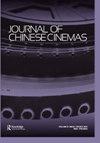The reincarnation of Tiger Mountain: Post-socializing the model opera film
IF 0.4
3区 艺术学
0 FILM, RADIO, TELEVISION
引用次数: 1
Abstract
This thesis is not simply about the model opera film (yangbanxi ), a genre that was favorably engineered by Madame Mao, Jiang Qing, in order to feed highly politicized lives of the Chinese masses, and scheme to continue igniting the revolutionary fervor among peasants, workers and soldiers. Instead, it opens up the discussion of reconsidering the politics of cultural production in contemporary China. By comparatively examining the narrative and film form in Taking Tiger Mountain by Strategy (1970) and The Taking of Tiger Mountain (2014), this thesis seeks to unravel the three main forces that are conventionally intertwined and negotiate with one another - globalization, nationalization, and regionalization - so as to articulate an ambivalent correlation between political economy, authoritarian control of the Chinese Communist Party, creative autonomy of the artist, and phenomenological contingency of moving image in digital cinema. Thus, the thesis is not only evaluating the state of Chinese-language cinema, but also reinvestigating the stake of cultural production in contemporary China, arguing for highlighting the complexity and paradox that are largely overlooked and/or oversimplified by the existing scholarship. I certify that the Abstract is a correct representation of the content of this thesis.虎山转世:后社会化的样板戏电影
这篇论文不仅仅是关于样板戏电影(杨板溪),这是毛和江青精心策划的一种类型,目的是满足中国人民高度政治化的生活,并计划继续点燃农民、工人和士兵的革命热情。相反,它开启了重新思考当代中国文化生产政治的讨论。本文通过对《智取威虎山》(1970)和《智取虎山》,中国共产党的独裁统治,艺术家的创作自主,以及数字电影中运动图像的现象学偶然性。因此,本文不仅评估了华语电影的现状,而且重新审视了当代中国文化生产的利害关系,强调了现有学术在很大程度上忽视和/或过于简单化的复杂性和悖论。我保证摘要是本论文内容的正确表述。
本文章由计算机程序翻译,如有差异,请以英文原文为准。
求助全文
约1分钟内获得全文
求助全文

 求助内容:
求助内容: 应助结果提醒方式:
应助结果提醒方式:


